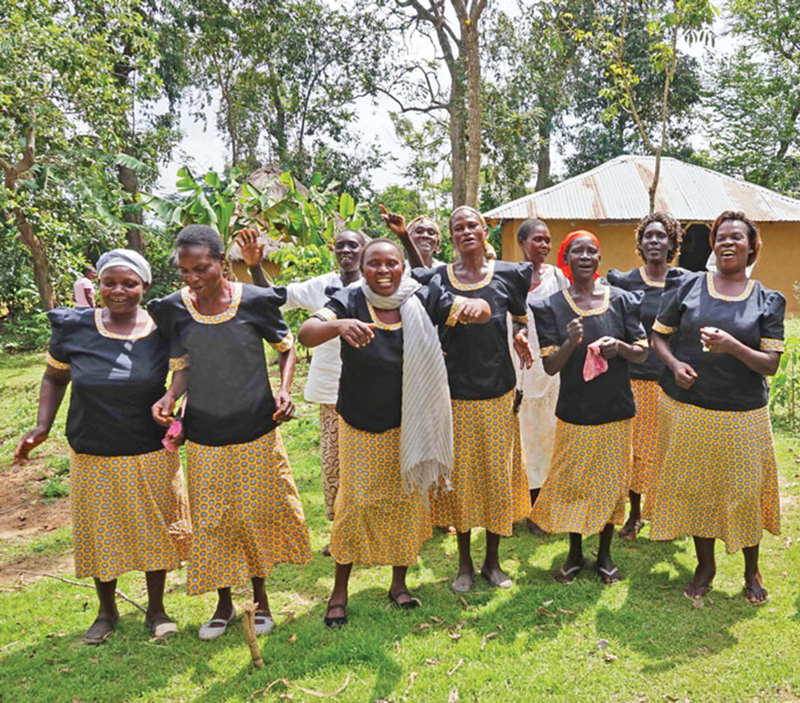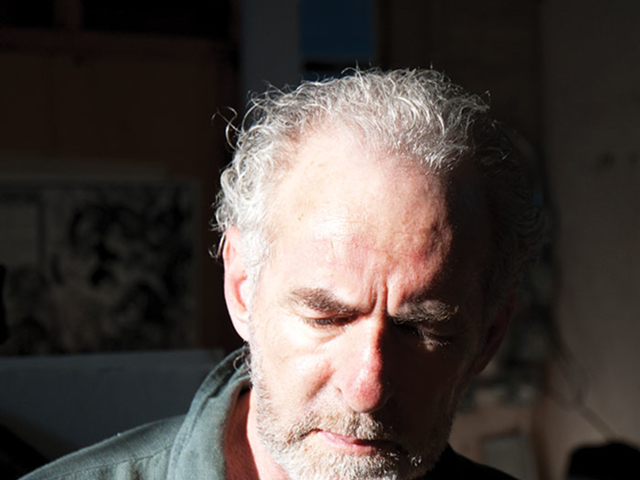Speaking on the phone from the Kenyan city of Kisumu, Randie Marsh, executive director of locally based nonprofit SOTENI International, recalls hearing singing on her way to a recent support group meeting — one of the 106 meetings SOTENI helps facilitate every month as part of its mission to reduce HIV/AIDS in rural Kenya and improve the lives of those affected. The song was coming from the families waiting to attend, who jubilantly danced and greeted Marsh as she arrived.
Although no two meetings are exactly alike — they cover a variety of educational topics and take place in four different Kenyan villages — they all have one aspect in common: the distribution of Procter & Gamble Purifier of Water packets. These pocket-sized sachets contain a powdered mixture that decontaminates water by removing pathogenic microorganisms, dirt and other suspended matter, making it clean and safe to drink.
Since teaming up with the Cincinnati-based P&G’s Children’s Safe Drinking Water program in 2010, SOTENI has provided 30 million liters of clean drinking water to rural Kenyans affected by HIV/AIDS.
“Every time I go to a support group meeting, to see the strength in these people — it humbles me,” says Marsh, a Cincinnati resident who has been with SOTENI since 2005. “It fires me up to continue my work. These are people who have been stigmatized, who have been pushed to the side by a lot of society here. Some of them haven’t even come out (about their disease) to other family members.”
Access to clean water is particularly imperative for individuals who are HIV positive because their immune systems are compromised by the disease. Approximately 1.4 million people living in Kenya are HIV positive, according to the United Nations, while 17 million Kenyans do not have access to clean water.
But P&G’s Purifier of Water packets are changing those statistics, one liter at a time.
The packets were invented in 2004 by P&G laundry scientists who were originally experimenting with ways to effectively separate dirt from used laundry water.
“Basically what they did is, they reverse-engineered what you would see in a municipal water treatment plant,” says Allison Tummon Kamphuis, Children’s Safe Drinking Water program leader. “They took those processes of coagulation, sedimentation, filtration and production — they took the same process and turned it into a small, 4 gram tiny sachet that can actually do the same cleaning process, but you can do it in a bucket with a stick and a cloth and a packet anywhere in the world.”
Each packet — developed in collaboration with the Centers for Disease Control and Prevention — removes more than 99.9 percent of common waterborne bacteria, viruses and protozoa from 10 liters of water. To begin purification, the powder is stirred into the water; the entire process takes about 30 minutes.
Children’s Safe Drinking Water was founded just after the packet’s invention in 2004, and the program has since provided more than 9 billion liters of clean drinking water in more than 75 countries. A goal is in place to reach 15 billion liters by 2020, Tummon Kamphuis says.
The partnership between the program and SOTENI came about when Tummon Kamphuis and Marsh both attended an event hosted by the World Affairs Council. The two got to talking and discovered just how compatible their organizations’ missions are.
“It’s like, wait a minute, why aren’t we partnering?” Marsh says. “We’re both here in Cincinnati, we know that P&G’s drinking water sachets work, we know that people who are HIV positive have compromised immune systems. This is a perfect partnership.”
Today, SOTENI provides about 8,000 people with clean drinking water on a monthly basis. During support group meetings, families are given enough P&G sachets to last until the following meeting, which, Marsh says, comes out to about 30 packets per family.
“Now they don’t have chronic diarrhea, they’re able to be healthier, they can work their farms,” Marsh says of the families she works with. “Their children are even healthy and not having to miss as much school.”
Providing clean water is only one aspect of SOTENI’s work. Meetings also delve into a wide variety of educational topics like hygiene, safe sex and nutrition in an effort to promote general health and wellness.
“We are focusing very heavily right now on hygiene and water safety,” Marsh says. “So it’s not just about the water that you’re drinking; it’s how to protect that water once you’ve cleaned it. It’s also about washing hands, it’s about washing hands after the toilet, it’s about keeping your toilets clean.”
SOTENI has more than 30 staff members in Kenya, including AIDS Barefoot Doctors: community health workers who provide group therapy, education and home-based care to people living with HIV/AIDS. Marsh is the only paid staff member in Cincinnati, where the vast majority of programming, research and fundraising takes place at the nonprofit’s Northside headquarters. That’s where the work of volunteers and interns like Victoria Bower comes in.
“It’s been a lot more hands-on than I expected of an internship, and I’ve been privileged to work directly with Randie,” Bower says. “I have the utmost respect for her compassion and dedication to this cause.”
For Marsh, every day, every support group meeting and every individual is entirely unique, and to document all of the rewarding experiences she’s had with SOTENI, she says a book, not an article, would suffice. But she refers back to the group that welcomed her by singing and dancing and describes the meeting as it began to take place.
“We went into the hut and sat there and started the meeting,” she says. “I told them, ‘I would like to take photos if it’s OK, but if you don’t want me to, that’s OK, because these photos will be out there — they’ll be on Facebook. If you do not want me to take your photo, I will not take it.’ Every one of those women sat there and looked at me and said, ‘No, take our photos. We are strong women and we are not ashamed. We are who we are.’
“I was humbled to be among these women, who are not going to let this disease suppress
them, make them feel hopeless, helpless. That was a strong, powerful moment.”
To learn more about SOTENI INTERNATIONAL, visit soteni.org. For more information on P&G’s CHILDREN’S SAFE DRINKING WATER program, visit csdw.org.






